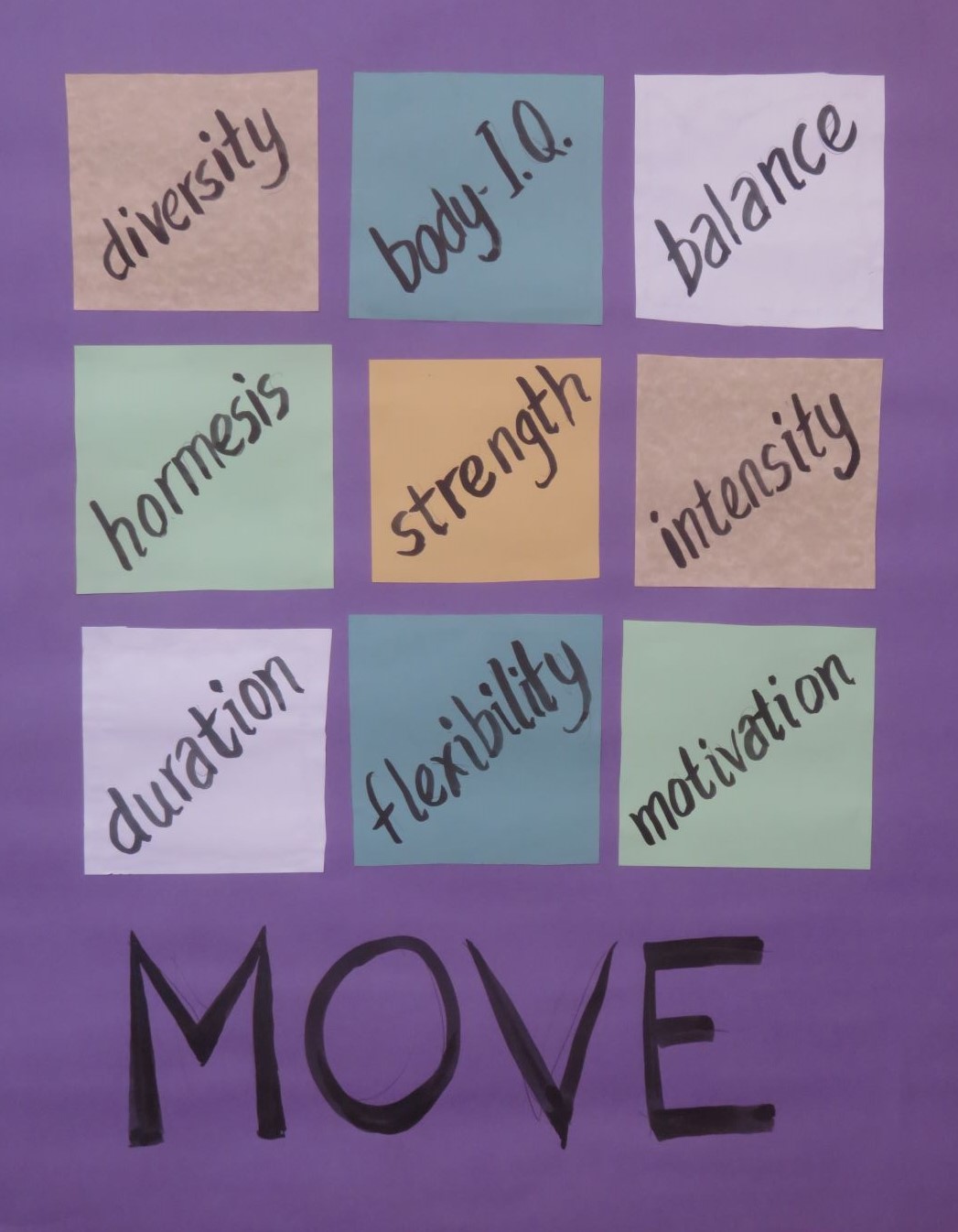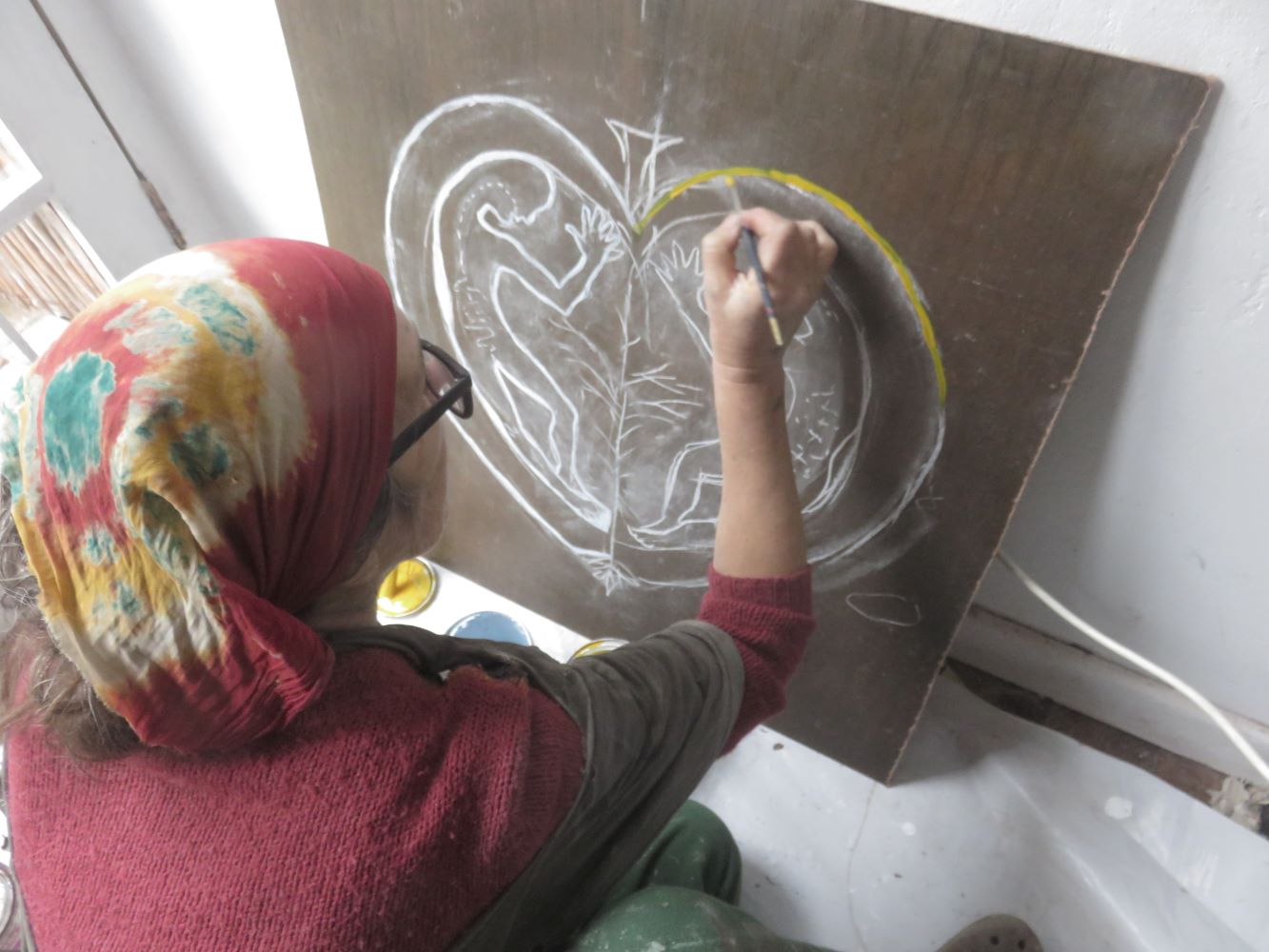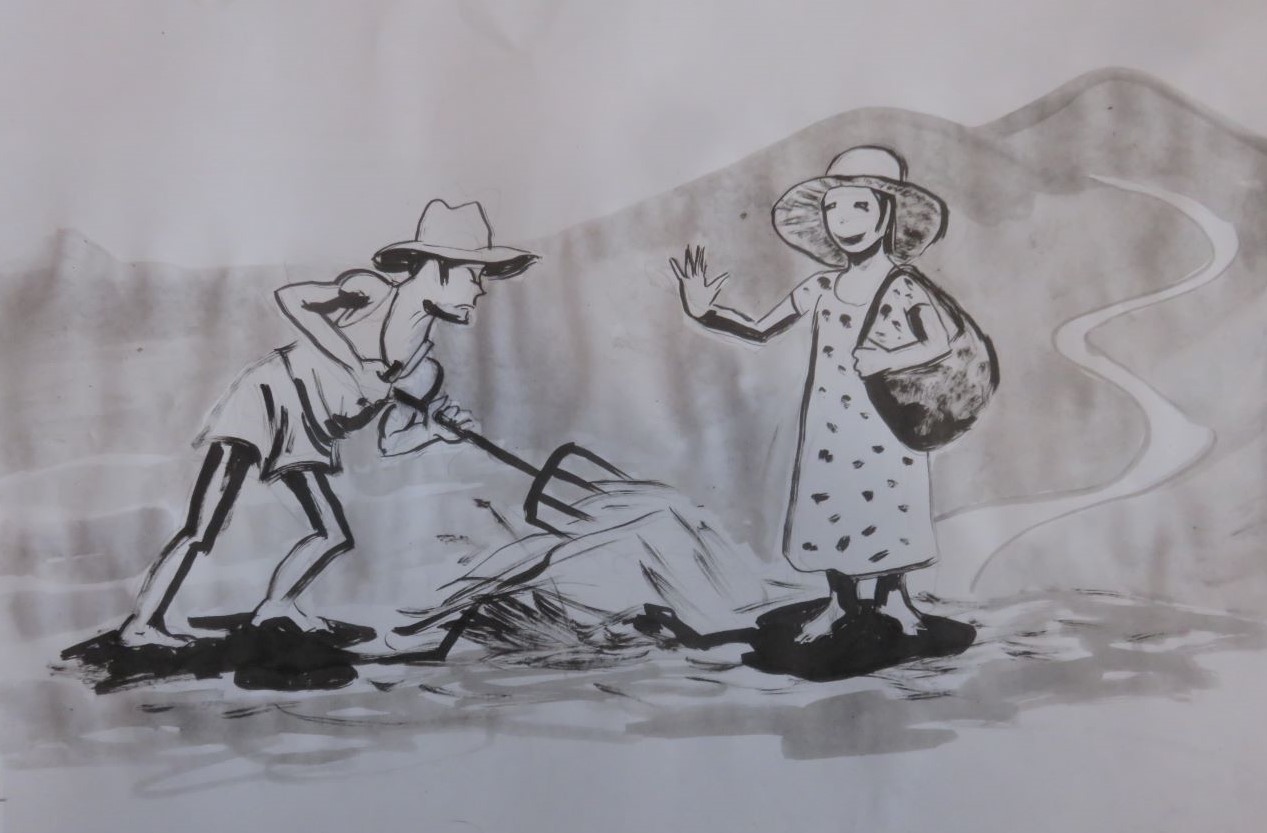Dear Reader, in this age of AI created content, please support with your goodwill someone who works harder to provide the human-made. Sign up at the top of the lefthand column or bottom of this page. You will receive my hand illustrated monthly newsletter RESTORE NATURE and access to the biodiversity garden design course as I write...and nothing else, I respect your time. I am also removing the advertizing as best I can as its become intrusive inappropriate and pays me nothing.
Natural purposeful exercise and gardening for health

Modern life encourages both unhealthy stress and unhealthy movement. We sit all day, in bodies designed to move, our muscles waste, tendons tighten, and blood glucose doesn't get consumed. We go to the gym thinking 60 minutes on a treadmill will fix it, but this is not so. So what is the best kind of exercise ? You will not be surprised when I say look back at our ancestors for answers.
Variety
Our ancestors enjoyed diverse movement. There was lots of physical work to do, involving running, throwing, bending, squatting and getting up, lifting weights, chopping, grinding or digging whereas most gyming is repetitive monotonous movement that does not involve your whole body. Multitasking in complex movement gives you more of a cardio workout. In addition, we work every muscle, and they stay fit. Repetition on a factory production line or walking on a flat surfaces stress the bones in the same place all the time and cause inflammation, and lots of pain. When you pound the treadmill the impact taxes your joints leading to injury,
Body IQ
Our ancestors' exercise was functional and productive, the opposite of gyming. We need functional multitasking movement to develop and maintain physical intelligence, making art, cooking, gardening, dancing or playing football. We need to preserve grip strength, and the feeling in our feet, otherwise these waste away.
Balance
Our forefathers and mothers climbed, and walked over rough surfaces, testing their balance. In the urban landscape surfaces tend to be smooth and level. If you don't use your balance, you lose it. When elders lose their balance, grip strength and feeling in their feet, it leads to falls, and hospital stays. After 80 falls are a leading cause of death.
Natural purposeful exercise provides multiple benefits to body and mind
So for varied movement and physical intelligence and balance Do more functional physical work, Work in the garden and refine coordination using sharp tools, grafting and planting seeds. Work barefoot, to keep your feet sensitive. Do yoga exercises, or functional tasks which test balance, climb and clamber. Gardening is a complex executive task that can help stave off dementia.
 Complex executive tasks involve planning and multi tasking. Making art, gardening, tactical sports, dancing, housekeeping, learning languages and marketing are other examples.
Complex executive tasks involve planning and multi tasking. Making art, gardening, tactical sports, dancing, housekeeping, learning languages and marketing are other examples.Hormesis
Our
rural ancestors worked in the heat and the cold, instead of inside so
for good
hormetic stress expose
yourself to the weather, for brief periods, or get sun on your skin for
ten minutes, to
boost mitochondrial health and energy. Please be sensible though, if
your desire is to roll in the snow naked do some research and seek out
someone with experience in such matters to guide you. There are also
people who swim in polar oceans but they build up to it.
Duration
They didn't stop moving whereas we sit or stand all day. Rural people sometimes walk for hours a day. When we sit for 25 minutes our blood glucose doesn't get used, and starts to climb, so lack of movement can actually make you get diabetic. So to get enough movement in your day, get up from your desk every 25 minutes and workout intensely for two minutes to bring your blood sugar down, Find an excuse to move, do different stretches during your breaks. Stand at your computer. Do at least half an our of hard, sweaty exercise daily, gardening, housework or stiff walking. Walking is the ultimate exercise for our bodies. For strong legs ride a bicycle to work or to the shops, hike with friends to forage for wild food and enjoy the calming effect nature. Sweating also helps you excrete heavy metals.
 Rural people work hard and walk far. This is supposed to be a happy farmer's wife returning from foraging in the mountains, greeting her husband who is turning the compost.
Rural people work hard and walk far. This is supposed to be a happy farmer's wife returning from foraging in the mountains, greeting her husband who is turning the compost.Intensity
We need to stop and start, push and slow down. its more beneficial than long uninterrupted workouts. After 25 minutes on a treadmill your stress hormones are that high that your body starts burning muscle tissue, which is fine if you are young, you will rebuild it, but bad later in life, when you are losing muscle mass naturally all the time. Do HIIT or high intensity interval training, alternating high effort and going slow during a workout. Warm up for ten minutes, then slow down. After that work in one minute bursts. Intense functional work like building or gardening will stop and start naturally.
Strength
As you get older do some weight lifting to maintain muscle mass. Gym machines with pulleys for the weights are easier on the body and less likely to wrench muscles and cause injury. Keep your grip strength with gripping tasks and squeezing a tennis ball. Don't use kitchen appliances, do the chopping and grinding by hand.
Flexibility
Varied movement, doing functional tasks like gardening will stretch much of your body. Yoga will help keep you supple and relaxed and dancing will sharpen your mind and help with balance and flexibility.
Motivation
Gardening provides high motivation to exercise. You don't even notice how intensely you were working until the next day..
------
home page for links to articles on natural gardening
------
------
the other articles on the six pillars of health
old fashioned stress management and avoiding toxins
healing insomnia and avoiding toxic radiation
healthy food, healthy microbiome and toxin avoidance
Restore Nature Newsletter
I've been writing for four years now and I would love to hear from you
Please let me know if you have any questions, comments or stories to share on gardening, permaculture, regenerative agriculture, food forests, natural gardening, do nothing gardening, observations about pests and diseases, foraging, dealing with and using weeds constructively, composting and going offgrid.
SEARCH
Order the Kindle E-book for the SPECIAL PRICE of only
Prices valid till 30.09.2023
Recent Articles
-
garden for life is a blog about saving the earth one garden at a time
Apr 18, 25 01:18 PM
The garden for life blog has short articles on gardening for biodiversity with native plants and regenerating soil for climate amelioration and nutritious food -
Cape Flats Sand Fynbos, Cape Town's most endangered native vegetation!
Apr 18, 25 10:36 AM
Cape Flats Sand Fynbos, a vegetation type found in the super diverse Cape Fynbos region is threatened by Cape Town's urban development and invasive alien plants -
Geography Research Task
Jan 31, 25 11:37 PM
To whom it may concern My name is Tanyaradzwa Madziwa and I am a matric student at Springfield Convent School. As part of our geography syllabus for this
"How to start a profitable worm business on a shoestring budget
Order a printed copy from "Amazon" at the SPECIAL PRICE of only
or a digital version from the "Kindle" store at the SPECIAL PRICE of only
Prices valid till 30.09.2023







